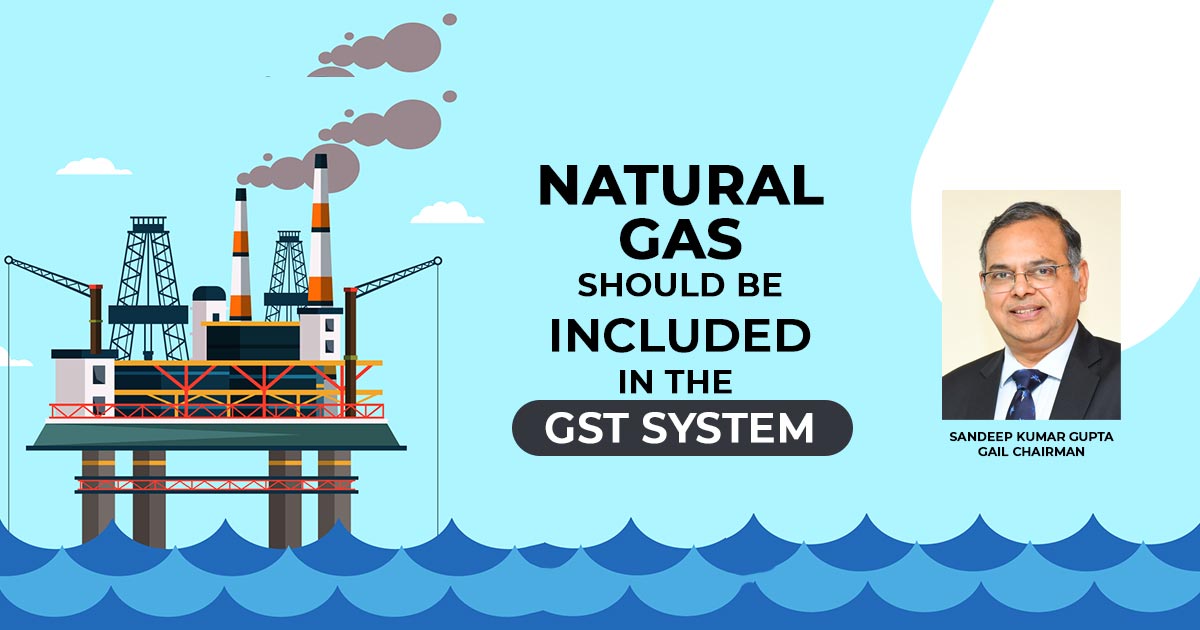
GAIL chairman Sandeep Kumar Gupta mentioned that the government should consider more stringent policy interventions if the country wishes to achieve its objective of exceeding than doubling the share of natural gas in the energy mix to 15% by 2030.
The government must mandate the use of natural gas in refineries and steelmaking, and make emissions a factor in the merit order for electricity despatch to permit gas-based power to compete with coal-based supply, Sanjeev Choudhary, the former finance chief of Indian Oil Corporation, said took over as the chief of India’s largest gas marketer and transporter in 2022.
He indeed mentioned that the natural gas must arrive under the goods and services tax (GST) regime, production-linked incentive (PLI) must be extended to LNG-powered vehicles and GST on CNG-powered vehicles should be slashed to 5% from 28%, on par with electric vehicles (EVs). Edited sections:
In What Way Does the Global Gas Market Seem?
The global gas market is effectively supplied and no concern is there for the prices of LNG. The OPEC+’s random production reduces, but, has an impact on LNG prices that are linked to crude oil. The circumstances can be corrected if the producer group reconsidered its judgment and took reliable measures.
Global LNG export capacity is designated to increase enormously in forthcoming years and that shall put pressure on prices.
Is There More Domestic Gas Demand?
No major uptick is there, particularly in the power or the fertilizer sector. There is a certain rise in the city gas. The domestic demand shall expand enormously till refineries, steel, and power shift to gas in a big way.
What Needs to be Accomplished to Increase the Gas Demand?
Certain policy interruptions shall be required if we attain our target of 15% gas in the domestic energy mix by 2030. Under GST the gas should be drawn which shall resolve the issue of wrecked input credit claims. The input credit absence makes gas much more expensive compared to the competing liquid fuels. Not more than 5% GST must be attracted by the gas.
On compression, the 14% central excise duty must be waived since the same is not a manufacturing activity. We can lessen CNG prices or offer incentives to drivers to convert to CNG if we obtain tax relief.
Nearly 80% of our gas-based power plants remain idle since they are unable to make it as per merit order. When the country has set a purpose to raise the share of gas in the energy mix and there is a climate issue, the merit order despatch must factor in not solely the production price but even the emissions. The moment emissions are factored in, gas-based power will commence displacing otherwise less-cost coal-based power.
The government shall required to mandate the utilization of natural gas in refineries, steel, and other industries towards an environmental perspective. It is to be compulsory for industries to use less-emitting natural gas for a specific percentage of their fuel necessities. Refiners have a large capacity to use natural gas, though their fuel decision today is directed by just economics.
Worried About Electric Vehicles Taking Away Your Market Share?
For EVs, the Centre is very supportive. States are active for the same. It shall compromise the demand for CNG in those areas. The sort of incentives available to EVs must be extended to LNG and CNG vehicles. PLI for LNG vehicles must be provided. on CNG vehicles there is a 28% GST today and on EVs, the same is only 5%. India’s electricity grid is predominantly grey today therefore the gas must obtain support as a transition fuel.
Read Also: Indian Auto LPG Coalition Requests Lower GST Rate on Auto LPG Gas
What are Your Overarching Goals for GAIL?
Our goal is to make GAIL an integrated company in the gas value chain, a company of global standing.
For pipelines to complete the national gas grid we are looking for more authorisation. We seek to add facilities for big gas or ethane-based petrochemicals. In India, there is a bigger potential for petrochemicals since we import a bigger amount. However, margins are lower. Therefore we seek tariff protection and financial incentives from the states to invest in the new facilities.









